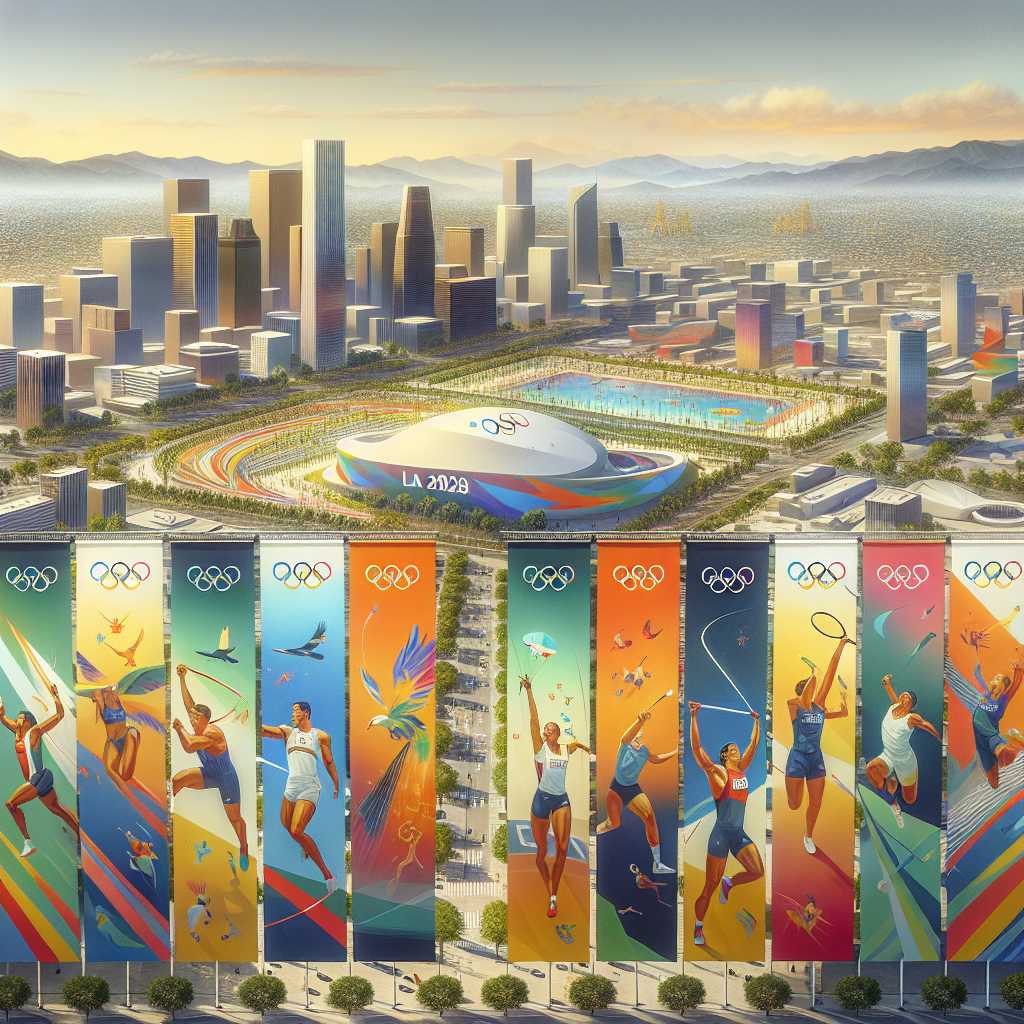The 2028 Summer Olympics: Preparations and Expectations for Los Angeles’ Global Showcase
As the host of the 2028 Summer Olympics, Los Angeles is gearing up to welcome the world to its second staging of the world’s largest multi-sport event. This global gathering of the finest athletes from around the globe is not only a sporting phenomenon but also a stage for emerging technologies, societal issues, and economic opportunities. Here’s what to anticipate as the City of Angels prepares to turn the spotlight on a groundbreaking edition of the Olympic Games.
Los Angeles: A Storied Olympic History
Los Angeles has twice played host to the Olympic Games, first in 1932 and later in 1984. Both events set benchmarks for organization and innovation in their time. The 1984 Olympics, in particular, are renowned for their financial success, due to smart marketing strategies and extensive use of existing facilities, highlighting a departure from the excesses that characterized other host cities. The city now aims to carry this legacy forward and embed it into the DNA of the 2028 Games.
Infrastructure and Investments for the Games
The groundwork for the raucous affair has already begun. Unlike many previous hosts, Los Angeles plans to deliver the Games without requiring substantial new infrastructure projects or sports venues—leveraging the wealth of state-of-the-art stadiums and facilities in Southern California. At the core of these plans is the sustainability ethos which intends to deliver a ‘low-risk, high-tech, and sustainable’ Olympic Games.
Infrastructural adjustments primarily address transportation systems and modernization, to ensure smooth transit not only for athletic delegations and visitors but for LA citizens during and after the event. These planned upgrades aim to address some of Los Angeles’s existing traffic and public transportation challenges—a bet that improved urban dynamics will be a lasting legacy of hosting the games.
Advancements in Technology During The Games
In harmony with its Hollywoodesque backdrop, LA 2028 promises to be a futuristic rendition fully embracing digital revolutions. The use of virtual reality (VR), artificial intelligence (AI), and robotics aims to not only enhance athlete training and performance but also revolutionize the spectator experience both in-person and remotely.
Next-level biometric tech could offer personalized customer experiences for hospitality while state-of-the-art surveillance drones and security algorithms will likely be tasked with ensuring safety amidst large crowds and high-profile events.
Economic Projections and Societal Implications
The anticipated economic boost from infrastructure updates, increased tourism, job creation, and overall global exposure can potentially elevate LA’s economic landscape for years. The long-term benefits further encapsulate societal implications including heightened community involvement, increased sports participation among youth, urban revitalization projects, and embracing diversity—reflecting Los Angeles’s rich cultural tapestry.
As with any mass-scale event, concerns exist over cost overruns, gentrification, and whether investments cater to all LA communities equitably—with efforts afoot to ensure initiatives like affordable housing remain front and center in legacy talks.
Controversies and Challenges Faced
Every Olympic endeavor comes under scrutiny for ethical reasons—be it socio-economic disparities between classes or countries or ecological concerns accompanying construction enterprises. In recognition of this history, organizers must fiercely navigate these potential pitfalls—prioritizing transparent efforts towards inclusivity and environmental responsibility.
Furthermore, sport controversies—notably anti-doping measures—are likely to retain prominence as international committees strive to maintain atheistic integrity amidst ever-evolving performance enhancement methods.
